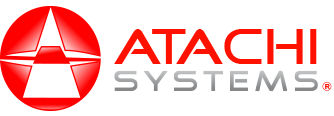Tag: MES vs ERP

14 Jun MES vs. ERP: ‘How to’ vs. ‘Why’
ERP knows the ‘why’ of things, MES knows the ‘how to’.
While MES Sofware solutions primarily support business decisions, the ERP supports the operational ones.
Features of MES software solution:
- Collect process and machine data from data silos
- Automatically create notifications and logs for issues
- Enforce product specifications and business rules
- Defect tracking and automated corrective actions
- Perform real-time quality checks and yield monitoring
- WIP tracking and genealogy management (order, lot, product)
Features of ERP systems:
- Integration – A central view of essential financial, operational and business data that can be shared across the organization in near-real-time.
- Automation – ERP provides the ability to automate repeatable business tasks, such as payroll, order processing, invoicing, reporting and more.
- Data Analysis – Enabling employees to gather a wide variety of information and spin it into actionable insights
- Reporting – Compile information about business operations into reports that empower stakeholders to make more informed decisions, enhance business processes and identify problem areas before the business suffers.
- Tracking and Visibility – Allow companies to track, surface and understand business metrics
- Accounting- Ability to track, store and analyze financial data, such as accounts payable (AP), accounts receivable (AR), general ledger (GL), budgets and forecasting.
- Financial Management – Assist finance teams with the management process by tracking, analyzing and reporting critical business data.
- CRM- Bring customer relationship data into the mix, expanding the view of the business
- Sales and Marketing – Benefit marketing and sales teams by making it easier for them to sell, upsell, generate quotes and purchase orders, forecast, manage commissions and track key details like profit margins and ratios
- Human Resources – Acts as an end-to-end employee management platform, handling payroll, hiring, onboarding, compensation management and timekeeping.
- Supply Chain Management – Offer insight into a company’s supply chain management (SCM) efficiency by tracking demand, inventory, manufacturing processes, logistics and distribution.
- Manufacturing – Create efficiency in manufacturing processes by assisting with product planning, sourcing raw materials, production monitoring and forecasting.
What are the main goals of MES software?
- Improve quality while driving down production costs
- Improve the efficiency and throughput of production
- Enable a paperless workflow and eradicate errors
- Meet complex regulatory and client requirements
- Reduce lead times and improve delivery reliability
- Enhance inventory velocity and flow of materials
What are the main goals of ERP software?
- Improve customer service and data management
- Enhance inventory & supplier management
- Support advanced real-time planning
- Streamline communication & collaboration
- Enable more informed management decisions
- Synchronize reporting across departments
Who uses MES software?
An MES platform is mainly used by people who are involved in production, going from plant managers to process engineers and operators.
ERP software is used on a daily basis by:
- The sales department to enter and track production orders
- Supply chain managers to schedule production orders
- Inventory & procurement to order new raw materials on time
- The HR department for payroll management and administration
- Finance teams & CEOs for business analysis and forecasting
- The marketing team for pre-sales activities and sales follow-up
Difference between ERP & MES software:
ERP software focuses on integrating business processes and synchronizing reporting across departments. Data is displayed over a period of time, often with a certain latency. ERP is mostly used by people in business outfits and requires some training in order to make it your own.
MES software lands on the other side of the moon. It is used on the factory floor and focuses on optimizing the manufacturing process itself. MES provides visibility, information and detailed metrics of manufacturing operations in real-time, simplifying the workflow of machine operators. Take a look at following difference between MES and ERP.
| ERP | MES |
| Business intelligence & reporting | Track & trace products & batches |
| Order processing & fulfillment | Guide the workflow of operators |
| Inventory management | Real-time production monitoring |
| Customer relation management | Automated waste registration |
| Supply chain management | Analyze production bottlenecks |
| Customer management | Finding reasons for downtime |
| Human resources management | Product quality optimisation |
| Marketing & sales | Schedule specific products |
Wrapping It All Up : MES VS ERP
So the difference between an ERP and an MES and what they do best is:
ERP is the financial information system for the company.
MES is focused on the building of the Products that the company produces.
MES & ERP: A Match Made in Heaven:
ERP and MES solutions have a lot of crossovers between them in how they track the production process. However, manufacturing companies in Industry 4.0 need a blend of the two systems to make the plant run at its maximum performance and present accurate information for decision-makers.When ERP and MES systems are integrated, data from management functions such as customer service, order processing, finance and purchasing are integrated with data from manufacturing, such as production scheduling, machine throughput, WIP, inventory changes, shipped orders, and quality management. This results in gate to gate traceability and transparency to real time changes that current disparate processes could not capture.
